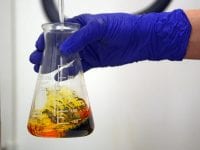CLEVELAND Feb. 4, 2021 TestOil, the industry leader in oil analysis, just announced a leading-edge remote learning opportunity for anyone involved in lubrication maintenance that wants to improve their skills at their pace and on their schedule.The new program, called “A-Sync Learning”, includes 20-minute modules, some free and some with a modest fee, that range…
Read more





